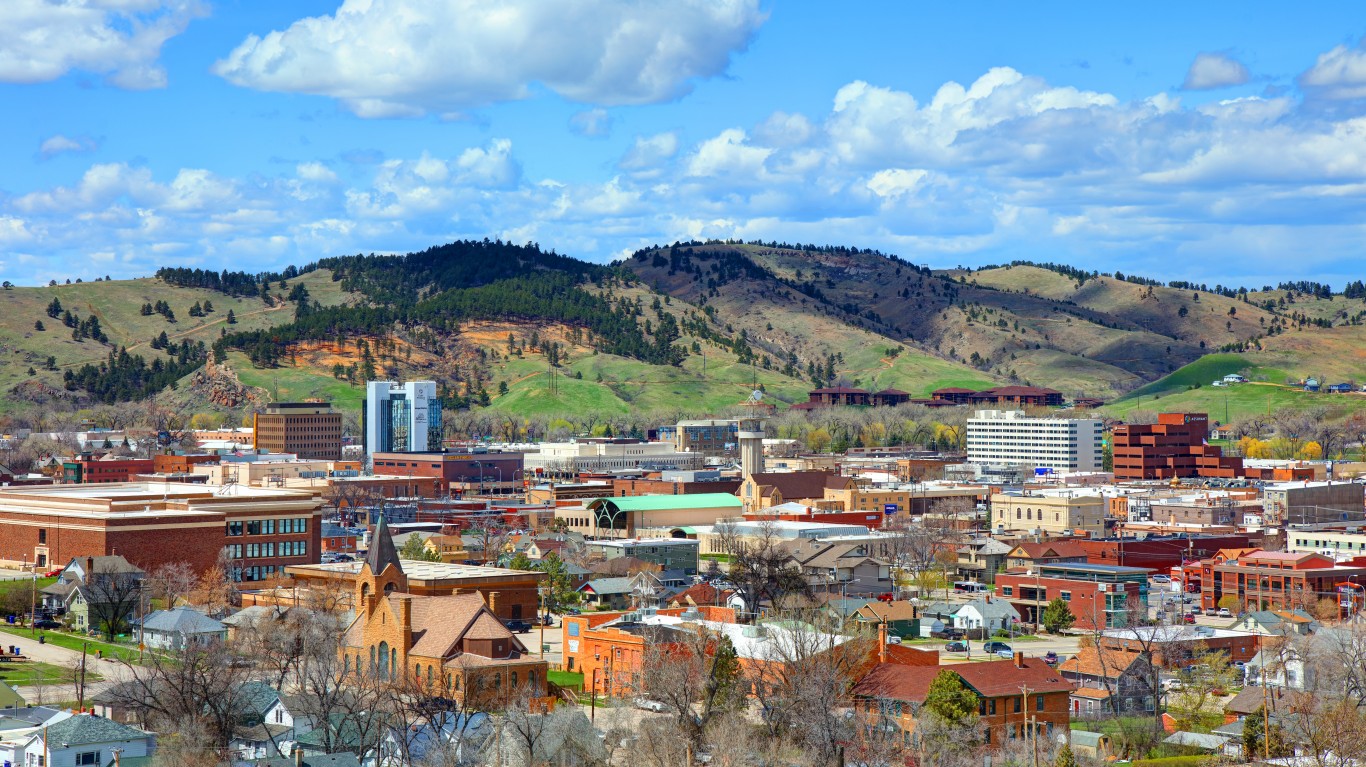
High poverty rates are associated with, among other things, low educational attainment rates, bad health outcomes, shorter lifespans and a poor chance for a better financial future. Poverty is often passed from generation to generation for decades. Some cities, counties and states have suffered from poverty for a long time. Poverty can be measured in areas as small as individual Zip codes. Among the best example is Detroit, largely abandoned by the auto industry that built it, and with a population that is smaller than it was in 1950.
As of 2019, the most recent year with an official poverty rate released by the U.S. Census Bureau’s American Community Survey (ACS), 13.4% of the U.S. population lived below the poverty line.
Of course, the poverty rate varies considerably across the country, and even before the COVID-19 unemployment crisis, poverty was already widespread in parts of the country. That is, half of the population or more lived on poverty-level income.
Using five-year estimates from the 2019 ACS, 24/7 Wall St. has identified the U.S. Zip code with the highest poverty rate.
As we looked for candidates, we found that eight Zip codes were located in Ohio, more than in any other state. Arizona has seven such Zip codes, while Mississippi and South Dakota each have five. Many of these Zip codes we examined are located in American Indian Reservations, which, for a variety of historical and contemporary reasons, are often among the most economically disadvantaged communities in the United States. Others are in Rust Belt cities that have suffered for decades from the decline of American manufacturing.
The poverty threshold is based on income, and in most of the country, an individual with an annual income of less than $12,880, or a family of four earning less than $26,500, is considered to be living in poverty.
The Zipcode with the highest poverty level is 57772. Here are the details:
Location: Porcupine, South Dakota
Poverty rate: 74.8%
Number of people living below poverty line: 1,728 (tied for 6,837th highest)
Households receiving SNAP benefits: 68.4% (highest)
Median household income: $19,750 (51st lowest)
Methodology: To determine the Zip code with the highest poverty rate in the nation, 24/7 Wall St. used Zip Code Tabulation Areas, a Census Bureau geography type that defines areal representations of U.S. Postal Service Zip codes (USPS Zip codes do not define geographic boundaries but instead are a network of mail delivery routes in a service area). We refer to Zip Code Tabulation Areas as Zip codes.
Of the 33,120 Zipcodes, the Census Bureau publishes data for, 32,989 had boundaries that fell within one of the 50 states or the District of Columbia.
Zipcodes were excluded if poverty rates were not available in the 2019 ACS, if the population for which the poverty status had been determined was less than 1,000, if 25% or more of a Zip code’s population were enrolled in undergraduate, professional or graduate school during the same period, or if the sampling error associated with a Zip code’s data was deemed too high.
The sampling error was defined as too high if the coefficient of variation (a statistical assessment of how reliable an estimate is) for a Zip code’s poverty rate was above 15% and greater than two standard deviations above the mean coefficient of variation for all Zip code’ poverty rates. We similarly excluded Zip codes that had a sampling error too high for their population for which poverty status had been determined, using the same definition.
The remaining 20,931 places were ranked based on their poverty rates. To break ties, we used median household income.
Additional information on the number of people living below the poverty line, median household income and the share of households receiving SNAP (formerly food stamps) benefits are also five-year estimates from the 2019 ACS.
Click here to read Zip Codes With the Highest Poverty Rates in the Nation
Are You Ahead, or Behind on Retirement?
If you’re one of the over 4 Million Americans set to retire this year, you may want to pay attention. Many people have worked their whole lives preparing to retire without ever knowing the answer to the most important question: am I ahead, or behind on my goals?
Don’t make the same mistake. It’s an easy question to answer. A quick conversation with a financial advisor can help you unpack your savings, spending, and goals for your money. With Zoe Financial’s free matching tool, you can connect with trusted financial advisors in minutes.
Why wait? Click here to get started today!
Thank you for reading! Have some feedback for us?
Contact the 24/7 Wall St. editorial team.




